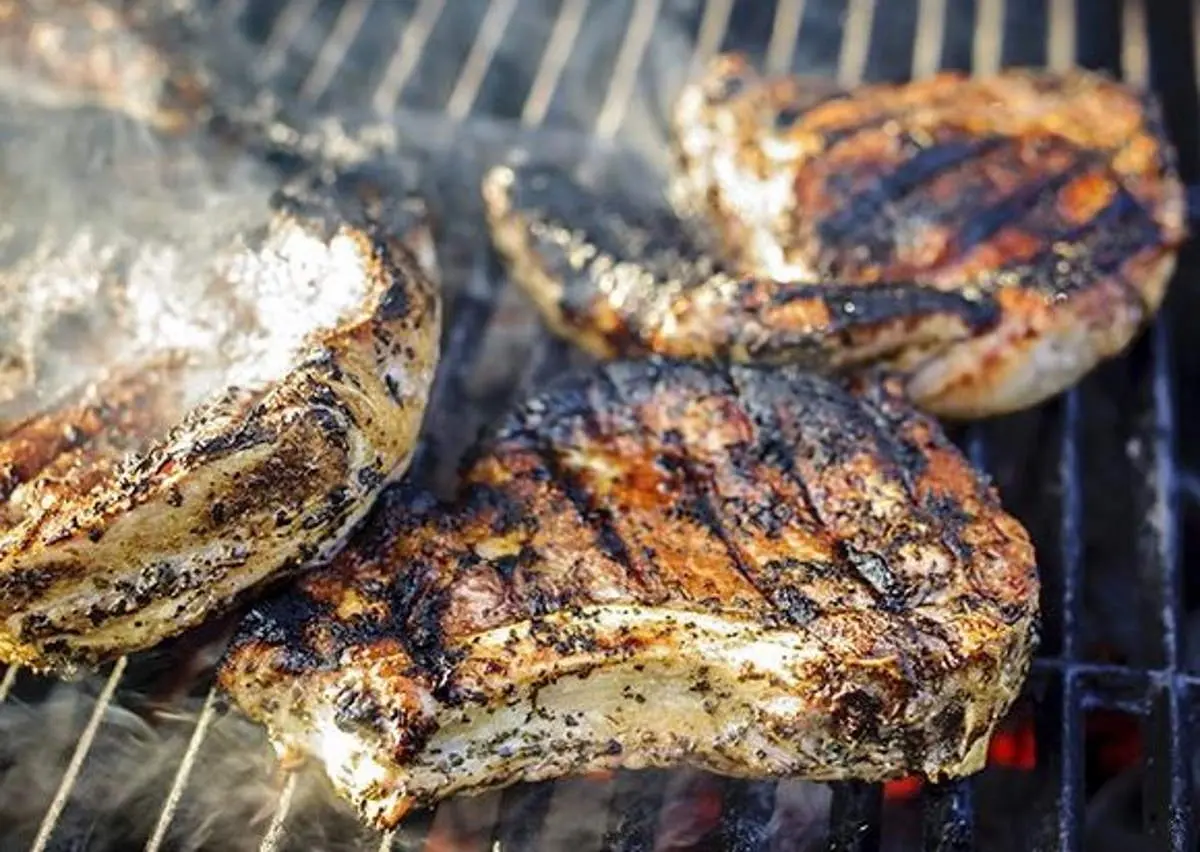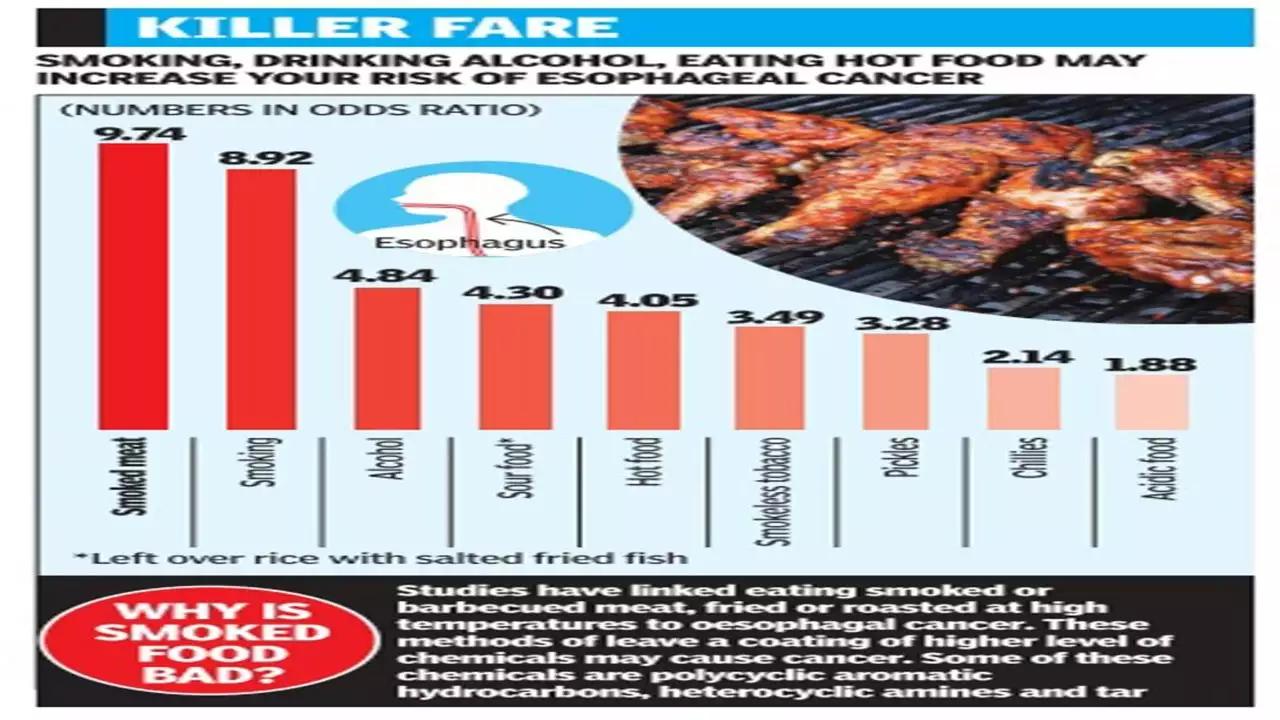Smoked meat is a popular delicacy enjoyed by many people around the world. The process of smoking meat involves exposing it to smoke from burning wood or charcoal for an extended period. This imparts a unique flavor and aroma to the meat, making it incredibly delicious. However, there are some potential dangers associated with consuming smoked meat that consumers need to be aware of. In this article, we will explore the dangers of smoked meat and how to ensure its safe consumption.

The Danger Zone for Smoked Meat
One of the primary concerns with smoked meat is the temperature range in which it is cooked and stored. This range, known as the danger zone, is between 40 °F and 140 °F. Within this temperature range, bacteria can rapidly multiply, increasing the risk of foodborne illnesses.
It is crucial to understand that smoked meat is not cooked at high temperatures like other cooking methods. Instead, it is slow-cooked at lower temperatures, which can create an ideal environment for bacteria growth if not handled properly.
The United States Department of Agriculture (USDA) recommends that food should not be left out of refrigeration for more than 2 hours. If the temperature is above 90 °F, the food should not be left out for more than 1 hour. This is to prevent the growth of harmful bacteria that can cause food poisoning.

Safe Preparation and Cooking of Smoked Meat
To ensure the safe consumption of smoked meat, it is essential to follow proper preparation and cooking practices. Here are some guidelines to keep in mind:
- Use a food thermometer: It is crucial to use a food thermometer to monitor the internal temperature of the meat. The USDA recommends cooking smoked meat to an internal temperature of at least 145 °F for beef, pork, veal, and lamb. Poultry should be cooked to an internal temperature of 165 °F.
- Monitor smoker temperature: In addition to monitoring the internal temperature of the meat, it is also important to monitor the air temperature in the smoker. The heat should stay between 225 °F and 300 °F throughout the cooking process to ensure the meat reaches a safe temperature.
- Proper storage: After smoking the meat, it is crucial to store it correctly. Smoked meat should be promptly refrigerated at a temperature below 40 °F to prevent bacterial growth. It is recommended to consume smoked meat within 3-4 days or freeze it for longer storage.
- Marinating: Marinating the meat before smoking can add flavor and help tenderize it. However, it is essential to marinate the meat in the refrigerator, not at room temperature, to prevent bacterial growth.
Potential Health Risks of Consuming Smoked Meat
Consuming improperly prepared or stored smoked meat can pose several health risks. The primary concern is the potential for foodborne illnesses caused by bacteria such as Salmonella, Escherichia coli (E. coli), and Listeria.
These bacteria can cause symptoms like nausea, vomiting, diarrhea, abdominal cramps, and fever. In severe cases, they can lead to more serious complications, especially in vulnerable populations such as young children, pregnant women, older adults, and individuals with weakened immune systems.
Furthermore, the process of smoking meat can also produce harmful compounds such as polycyclic aromatic hydrocarbons (PAHs) and heterocyclic amines (HCAs). These compounds have been linked to an increased risk of cancer when consumed in high amounts. However, the risk can be minimized by following safe smoking practices and consuming smoked meat in moderation.
Q: Can smoking meat be safe?
A: Yes, smoking meat can be safe if proper food safety practices are followed. This includes using a food thermometer, monitoring smoker temperature, and storing the meat correctly.
Q: Can I eat smoked meat if I'm pregnant?
A: Pregnant women should exercise caution when consuming smoked meat due to the potential risk of bacterial contamination. It is advisable to ensure the meat is properly cooked and stored before consumption.
Q: Can I freeze smoked meat?
A: Yes, smoked meat can be frozen for longer storage. It is recommended to package it in airtight containers or freezer bags to maintain its quality.
Q: Are there any alternatives to smoking meat?
A: Yes, there are alternative methods of cooking meat that can provide a similar flavor. These include grilling, roasting, and slow cooking in an oven.
In Conclusion
While smoked meat can be incredibly delicious, it is essential to be aware of the potential dangers associated with its consumption. By following proper food safety practices and cooking guidelines, you can enjoy smoked meat safely. Remember to use a food thermometer, monitor smoker temperature, and store the meat correctly. By taking these precautions, you can minimize the risks and savor the unique flavors of smoked meat without compromising your health.
If you want to know other articles similar to The dangers of smoked meat: risks and safe consumption you can visit the Food safety category.


Related Articles